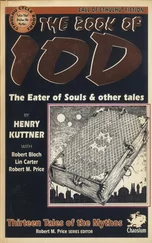Charles Henry Mackintosh - Notes on the Book of Deuteronomy, Volume I
Здесь есть возможность читать онлайн «Charles Henry Mackintosh - Notes on the Book of Deuteronomy, Volume I» — ознакомительный отрывок электронной книги совершенно бесплатно, а после прочтения отрывка купить полную версию. В некоторых случаях можно слушать аудио, скачать через торрент в формате fb2 и присутствует краткое содержание. Жанр: foreign_prose, foreign_antique, на английском языке. Описание произведения, (предисловие) а так же отзывы посетителей доступны на портале библиотеки ЛибКат.
- Название:Notes on the Book of Deuteronomy, Volume I
- Автор:
- Жанр:
- Год:неизвестен
- ISBN:нет данных
- Рейтинг книги:4 / 5. Голосов: 1
-
Избранное:Добавить в избранное
- Отзывы:
-
Ваша оценка:
- 80
- 1
- 2
- 3
- 4
- 5
Notes on the Book of Deuteronomy, Volume I: краткое содержание, описание и аннотация
Предлагаем к чтению аннотацию, описание, краткое содержание или предисловие (зависит от того, что написал сам автор книги «Notes on the Book of Deuteronomy, Volume I»). Если вы не нашли необходимую информацию о книге — напишите в комментариях, мы постараемся отыскать её.
Notes on the Book of Deuteronomy, Volume I — читать онлайн ознакомительный отрывок
Ниже представлен текст книги, разбитый по страницам. Система сохранения места последней прочитанной страницы, позволяет с удобством читать онлайн бесплатно книгу «Notes on the Book of Deuteronomy, Volume I», без необходимости каждый раз заново искать на чём Вы остановились. Поставьте закладку, и сможете в любой момент перейти на страницу, на которой закончили чтение.
Интервал:
Закладка:
But, ah! it was not so with Israel in the desert; and, what is still more humbling, it is not so in the Church of God, although our privileges are so much higher. Hardly had the assembly been formed by the presence of the Holy Ghost ere the accents of murmuring and discontent were heard. And about what? About "neglect," whether fancied or real. Whatever way it was, self was at work. If the neglect was merely imaginary, the Grecians were to blame; and if it was real, the Hebrews were to blame. It generally happens, in such cases, that there are faults on both sides; but the true way to avoid all strife, contention, and murmuring is to put self in the dust and earnestly seek the good of others. Had this excellent way been understood and adopted, from the outset, what a different task the ecclesiastical historian would have had to perform! But, alas! it has not been adopted; and hence the history of the professing church, from the very beginning, has been a deplorable and humiliating record of controversy, division, and strife. In the very presence of the Lord Himself, whose whole life was one of complete self-surrender, the apostles disputed about who should be greatest. Such a dispute could never have arisen had each known the exquisite secret of putting self in the dust and seeking the good of others. No one who knows aught of the true moral elevation of self-emptiness could possibly seek a good or a great place for himself. Nearness to Christ so satisfies the lowly heart, that honors, distinctions, and rewards are little accounted of; but where self is at work, there you will have envy and jealousy, strife and contention, confusion and every evil work.
Witness the scene between the two sons of Zebedee and their ten brethren, in the tenth chapter of Mark. What was at the bottom of it? Self. The two were thinking of a good place for themselves in the kingdom, and the ten were angry with the two for thinking of any such thing. Had each set self aside, and sought the good of others, such a scene would never have been enacted,—the two would not have been thinking about themselves, and hence there would have been no ground for the "indignation" of the ten.
But it is needless to multiply examples. Every age of the church's history illustrates and proves the truth of our statement that self and its odious workings are the producing cause of strife, contention, and division, always. Turn where you will—from the days of the apostles down to the days in which our lot is cast, and you will find unmortified self to be the fruitful source of strife and schism; and on the other hand, you will find that to sink self and its interests is the true secret of peace, harmony, and brotherly love. If only we learn to set self aside, and seek earnestly the glory of Christ and the prosperity of His beloved people, we shall not have many "cases" to settle.
We must now return to our chapter.
"How can I myself alone bear your cumbrance, and your burden, and your strife? Take you wise men, and understanding, and known among your tribes, and I will make them rulers over you. And ye answered me, and said, 'The thing which thou hast spoken is good for us to do.' So I took the chief of your tribes, wise men, and known "—men fitted of God, and possessing, because entitled to, the confidence of the congregation—"and made them heads over you, captains over thousands, and captains over hundreds, and captains over fifties, and captains over tens, and officers among your tribes."
Admirable arrangement! If indeed it had to be made, nothing could be better adapted to the maintenance of order than the graduated scale of authority, varying from the captain of ten to the captain of a thousand; the lawgiver himself at the head of all, and he in immediate communication with the Lord God of Israel.
We have no allusion here to the fact recorded in Exodus xviii, namely, that the appointment of those rulers was at the suggestion of Jethro, Moses' father-in-law; neither have we any reference to the scene in Numbers xi. We call the reader's attention to this as one of the many proofs which lie scattered along the pages of Deuteronomy that it is very far indeed from being a mere repetition of the preceding sections of the Pentateuch. In short, this delightful book has a marked character of its own, and the mode in which facts are presented is in perfect keeping with that character. It is very evident that the object of the venerable lawgiver, or rather of the Holy Ghost in him, was to bring every thing to bear, in a moral way, upon the hearts of the people, in order to produce that one grand result which is the special object of the book from beginning to end, namely, a loving obedience to all the statutes and judgments of the Lord their God.
We must bear this in mind if we would study aright the book which lies open before us. Infidels, skeptics, and rationalists may impiously suggest to us the thought of discrepancies in the various records given in the different books; but the pious reader will reject, with a holy indignation, every such suggestion, knowing that it emanates directly from the father of lies, the determined and persistent enemy of the precious revelation of God. This, we feel persuaded, is the true way in which to deal with all infidel assaults upon the Bible. Argument is useless, inasmuch as infidels are not in a position to understand or appreciate its force; they are profoundly ignorant of the matter. Nor is it merely a question of profound ignorance, but of determined hostility; so that, in every way, the judgment of all infidel writers on the subject of divine inspiration is utterly worthless and perfectly contemptible. We would pity and pray for the men, while we thoroughly despise and indignantly reject their opinions. The Word of God is entirely above and beyond them. It is as perfect as its Author, and as imperishable as His throne; but its moral glories, its living depths, and its infinite perfections are only unfolded to faith and need. "I thank Thee, O Father, Lord of heaven and earth, because Thou hast hid these things from the wise and prudent, and hast revealed them unto babes."
If we are only content to be as simple as a babe, we shall enjoy the precious revelation of a Father's love, as given by His Spirit in the holy Scriptures; but on the other hand, those who fancy themselves wise and prudent—who build upon their learning, their philosophy, and their reason—who think themselves competent to sit in judgment on the Word of God, and hence on God Himself, are given over to judicial darkness, blindness, and hardness of heart. Thus it comes to pass that the most egregious folly and the most contemptible ignorance that man can display will be found in the pages of those learned writers who have dared to write against the Bible. "Where is the wise? where is the scribe? where is the disputer of this world? hath not God made foolish the wisdom of this world? For after that in the wisdom of God the world by wisdom knew not God, it pleased God by the foolishness of preaching to save them that believe." (1 Cor. i. 20, 21.)
"If any man will be wise, let him become a fool." Here lies the grand moral secret of the matter. Man must get to the end of his own wisdom, as well as of his own righteousness. He must be brought to confess himself a fool ere he can taste the sweetness of divine wisdom. It is not within the range of the most gigantic human intellect, aided by all the appliances of human learning and philosophy, to grasp the very simplest elements of divine revelation; and therefore, when unconverted men, whatever may be the force of their genius or the extent of their learning, undertake to handle spiritual subjects, and more especially the subject of the divine inspiration of holy Scripture, they are sure to exhibit their profound ignorance, and utter incompetency to deal with the question before them. Indeed, whenever we look into an infidel book, we are struck with the feebleness of their most forcible arguments; and not only so, but in every instance in which they attempt to find a discrepancy in the Bible, we see only divine wisdom, beauty, and perfectness.
Читать дальшеИнтервал:
Закладка:
Похожие книги на «Notes on the Book of Deuteronomy, Volume I»
Представляем Вашему вниманию похожие книги на «Notes on the Book of Deuteronomy, Volume I» списком для выбора. Мы отобрали схожую по названию и смыслу литературу в надежде предоставить читателям больше вариантов отыскать новые, интересные, ещё непрочитанные произведения.
Обсуждение, отзывы о книге «Notes on the Book of Deuteronomy, Volume I» и просто собственные мнения читателей. Оставьте ваши комментарии, напишите, что Вы думаете о произведении, его смысле или главных героях. Укажите что конкретно понравилось, а что нет, и почему Вы так считаете.












